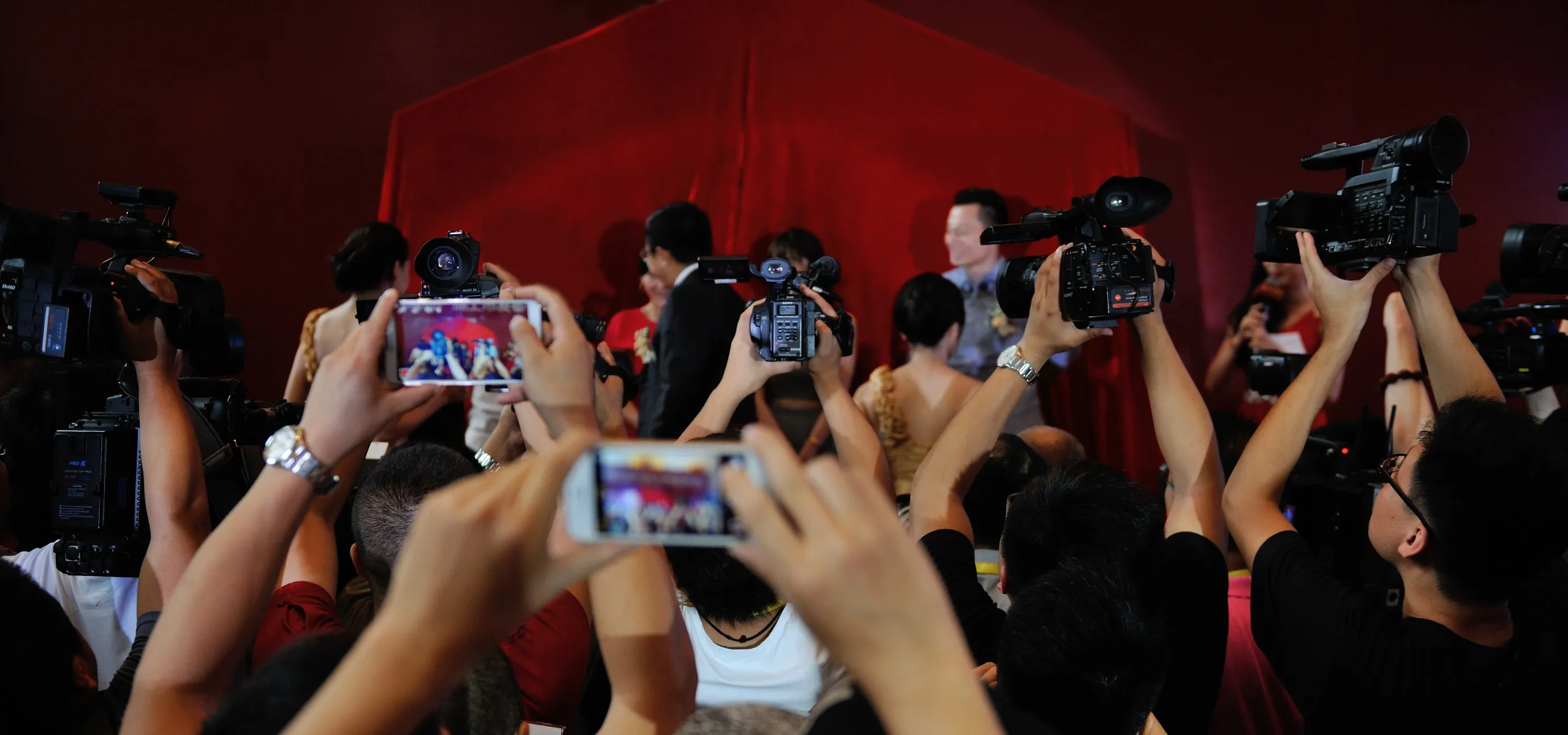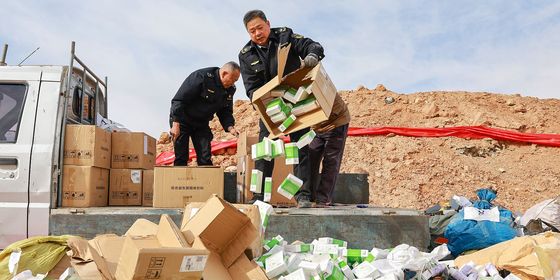A language guide to how Chinese celebrities and companies handle public relations crises...and often make them worse
A rat’s head found in cafeteria food might have seemed like the biggest public relations scandal that a college might ever face…but somehow, the administration of the Jiangxi Industry Polytechnic College managed to make a disgusting situation worse.
On June 3, two days after a student shared a video of finding a suspiciously rat-head-like object in his food in the cafeteria, the college came out with a public statement claiming that the video’s “反映内容与事实不符 (fǎnyìng nèiróng yǔ shìshí bùfú, content does not correspond to facts)” and that the buck-toothed, bewhiskered object was in fact a piece of duck’s neck, a relatively normal food item eaten in parts of China.
When netizens refused to buy the explanation, the school and, later, the local authorities doubled down on the denial, until finally an investigation by higher-up officials revealed it was indeed a rat’s head—surprising no one, but shaking almost everyone’s confidence in food safety, as well as the public accountability of Chinese institutions.
Netizens dubbed the college’s public relations strategy in this crisis as “指鼠为鸭 (zhǐshǔwéiyā, calling a rat duck),” a nod to the idiom 指鹿为马 (zhǐlùwéimǎ) derived from an ancient story in which a powerful chancellor claimed that a deer gifted to Qin Shi Huang, China’s first emperor, was actually a horse. Other officials, fearful of the chancellor’s influence, all agreed with the obvious lie.
Deliberately confusing right and wrong is but one strategy that companies, institutions, and celebrities adopt to manage public relations crises, some of which pay off better than others.
Playing victim
One way to make a denial of a scandal even more effective is to play the victim, hoping to make the public believe that it’s you, not the people you supposedly wronged, who deserve their sympathy.
One example is Cai Xukun, one of China’s top singers and actors, who recently denied the allegation that he forced a woman he’d impregnated to get an abortion. Cai’s PR team would like the public to believe that the scandal is no more than rumor-mongering:
I ask certain social media accounts to please refrain from spreading or believing in rumors.
恳请相关自媒体不信谣、不传谣。
Some accused parties also cry they were 被搞了 (bèi gǎo le, being set up) in the face of criticism—specifically, that some enemies hired 水军 (shuǐjūn, water army), or paid social media users, to leave negative comments about them:
This incident carries the obvious mark of the “water army.”
水军痕迹极其明显。
A celebrity (or usually, their agents or lawyers) might also claim they will resort to 法律武器 (fǎlǜ wǔqì, literally “weapons of law”) to shore up their claim of innocence, making the public believe they must be earnest if they’re willing to sue or use other legal means to protect their reputation:
For behaviors that constitute defamation and slandering or damage to [the celebrity’s] right to reputation, our company will take legal measures to get to the bottom of it.
对于诽谤中伤、侵害名誉权的行为,我司将采取法律措施,追究到底。
But this is a double-edged sword: Sometimes, turning to the police or courts can reveal more dirty laundry about the celebrity themselves than the person they wanted to silence. This happened in 2021 with the mother of disgraced singer Kris Wu, who reported Du Meizhu, the woman who accused her son of sexually assaulting her and several other young women, to the police on the charge of extortion. The police instead found evidence to back up Du’s accusations. When this strategy backfires, netizens have a good laugh at how the celebrity or their team has been 打脸了 (dǎ liǎn le, “slapped in the face”).
Taking the moral high ground
If empty threats or claims of victimhood don’t work, one can always cast doubt on the credibility of the accuser. Last year, when the well-known soy sauce brand Haitian came under attack for using more food additives in their domestic products than those they sold in international markets, the company responded that additives do not make for a less safe food product, and chided consumers for their ignorance:
Using the so-called “double standard” to antagonize consumers and domestic brands not only harms Chinese consumers’ confidence, but also severely impacts the international reputation of “made in China” products.
用所谓“双标”来挑起消费者和中国品牌企业的矛盾对立,不仅打击了中国老百姓的消费信心,更会严重影响“中国造”的世界声誉。
And when consumers noticed that athletic brand Li Ning’s winter 2022 clothing line bore an unfortunate resemblance to Japanese army uniforms in World War II, the company claimed it was inspired by ancient Chinese garments. One member of the company commented:
The consumers are not cultured enough.
消费者文化沉淀太少。
Another option is to lecture the public for not being understanding enough, especially of the poor employee who made the inevitable human error (but who probably still got fired). Earlier this year, when two staffers handing out free ice cream for BMW were accused of favoring foreign visitors over Chinese ones at a Shanghai auto show, the company released one response among many that stated:
These two young ladies are new to the job market. Can everyone please be more tolerant of them?
事件当中的两位礼仪小姐姐也是刚刚踏入社会的年轻人,可不可以请大家给她们多点儿宽容和空间?
Predictably, these attempts to lecture consumers from the moral high ground all backfired, only enraging the public even more.
Never my fault
In the face of any tragic event, it’s important that a company acknowledge the facts and offer condolences:
We are very sorry about this accident, and offer our condolences to the deceased colleague.
我们对这次意外非常痛心,对罹难同事表示深切哀悼。
It’s also wise to show initiative and action following up an accident:
After the accident, we immediately worked with the police to analyze the cause of the event.
事故发生后,公司第一时间协同公安部门启动了事故原因调查分析程序。
However, in some cases—such as in 2022, when a test vehicle by electric car company Nio fell from a third-floor garage and killed two people—this might be followed up by an attempt to deflect responsibility:
We arrive at the preliminary conclusion that this is an accident unrelated to the vehicle itself.
可以初步确认,这是一起意外事故,与车辆本身没有关系。
Netizens may or may not have bought the explanation, but they certainly did not like it, as shown by one response to Nio’s announcement on Weibo:
Truly, the last sentence shows the cold-bloodedness of capital.
讲真,最后一句话凸显了资本的冷血。
I’m sorry, but...
Given all the tricks and strategies companies and public figures adopt to rid themselves of responsibilities, sometimes it’s almost refreshing to see a response to a scandal that simply admits fault and expresses regret:
I will brave myself to face all my past wrong-doings, cooperate with legal investigations, and accept responsibilities.
对于过往所犯下的过错必将勇于承担面对,并配合司法调查,负起责任。
I sincerely apologize to all those I hurt.
对于所有曾经被伤害过的人,由衷致歉。
However, no matter how sincere the apology seems, there might still be a catch. The above statements come from Taiwan TV host Huang Zijiao, in a video he released following recent sexual harassment allegations against him. But immediately after these words of regret, he went on to accuse several other celebrities of using illegal drugs. This way, he successfully deflected attention from his own wrongdoings—or maybe, he just figured he had nothing more to lose:
I don’t care. I’m going to speak out. I don’t care if you go down, because nobody cares if I go down.
我不管,我就是要说出来,我管你们去死,反正也没人管我去死。
How (Not) to Handle a PR Crisis in Chinese is a story from our issue, “Small Town Saga.” To read the entire issue, become a subscriber and receive the full magazine.












